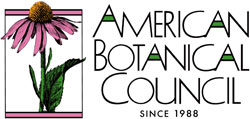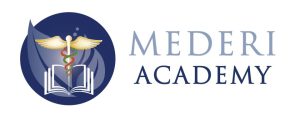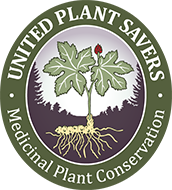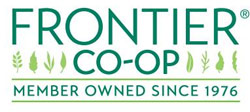Digital Lecture Notes
View, save and/or download individual lecture notes. The password to access the notes is ME25
Directory
Friday, May 16
9:00 AM – 7:30 PM
Registration Table Open
Location: Lobby of Harrell Center
10:00 AM – 3:00 PM
Field Study with David Winston, RH (AHG)
Location: Native Garden (Meet in Lobby)
Pre-registration required.
12:00 PM – 1:30 PM
Lunch for Early Arrivals Only
Location: Lambuth Dining Room
1:00 PM – 5:15 PM
Intensive: Menopause as a Neuroinflammatory and Hormonal Event with Wendy Warner, MD, ABIHM, IFMCP
Location: Harrell Auditorium
Pre-registration required.
5:30 PM – 7:00 PM
Dinner
Location: Terrace Private Dining Room 319
7:30 PM
Symposium Kick-Off
Location: Explore exhibit halls in room 105 and listen to Joe Hallock & Friends outside of the Harrell Center
Come browse the exhibit tables while Joe Hallock & Friends play old-time music to kick off the start of the event!
7:30 PM – 8:00 PM
Opening Meeting and Speaker Introductions
Location: Auditorium
Meet the weekend’s speakers and find out more about them
8:00 PM – 9:30 PM
Keynote: Entering The Mysterium: Healing Through Wonder and the Living World
Kiva Rose, Herbalist and Author
Location: Auditorium
In this transformative keynote, Kiva Rose explores the profound interplay between the natural world and human healing. Drawing on decades of herbal practice and ecological immersion, she delves into the numinous beauty of plants—not merely as tools but as partners in an intricate dance of connection and wonder.
Kiva invites attendees to move beyond reductionist views of the materia medica, embracing plants as agents of enchantment and transformation. With vivid stories from her wilderness apothecary and personal reflections from her practice, she reveals how the sensory and spiritual dimensions of plant work bridge the mundane and the sacred. This talk reawakens our intrinsic bond to the more-than-human world, offering a path toward ecological harmony, personal wellness, and the healing truths of mystery itself. Attendees will leave inspired to rediscover the awe and interconnectedness at the heart of the green world, emboldened to carry its healing gifts into their lives and practices.
Saturday, May 17
7:00 AM – 7:45 AM
Qi Gong with Tyler White
Location: Botanical Gardens (Meet at Harrell Center)
8:00 AM – 5:00 PM
Registration Table Open
Location: Lobby of Harrell Center
7:30 AM – 9:00 AM
Breakfast
Location: Terrace Dining Room
9:00 AM – 10:30 AM
(Concurrent lectures–choose one to attend during each time slot)
Surface Eruptions: A Primer on Skin Rashes and Botanical Medicine Approaches to their Treatment
Kenneth Proefrock, NMD
Location: Auditorium
Rash is a very broad medical term defined as a widespread eruption of skin lesions. They can vary widely in appearance, with causes ranging from insect bites to HIV and reactions to medications, they can affect one part of the body or cover a large area. Rashes can be dry, moist, bumpy, smooth, cracked, or blistered. They can involve pain, itching, and color changes. There is a vast spectrum for how skin rashes manifest in patients with more and less pigmentation and this is an arena of medicine fraught with controversy (most skin rashes are presented in photos of less pigmented people in the medical literature, but most skin manifestations of STI’s are presented with photos of people of with more pigmentation–a significant effector of bias when that distortion is presented to medical students). Some rashes will clear up on their own, some respond to herbal remedies, and others might be a sign of something more serious that needs to be addressed differently. We will discuss the many reasons for skin rashes and the underlying mechanism for their presentation, including skin infections from bacterial, fungal, viral, or parasitic infections, allergies, and medications. We discuss the internal and topical botanical medicine interventions that have a history of use and we discuss their rationale, we also discuss concepts of suppression vs. healing.
Disaster Herbalism
Sam Coffman, L.Ac, W-EMT, RH(AHG), Best-selling Author
Location: Room 101
This lecture explores the foundational principles of disaster herbalism and austere botanical medicine, focusing on the clinical applications of herbs and basic therapeutic techniques in crisis settings. Drawing from over 15 years of experience providing care in disaster zones both in the U.S. and abroad, Sam will review essential herbal protocols for musculoskeletal trauma, immune support, and stress management in austere conditions. Key topics include setting up sustainable infrastructure for herbal medicine in disaster environments, combining basic Traditional Chinese Medicine techniques (such as ear seed therapy) with field-ready formulations, and understanding practical challenges in resource-limited settings. Case studies from Sam’s hurricane response efforts, including post-Harvey work along the Texas coast, will be shared to highlight real-world clinical applications and lessons learned in disaster recovery.
Unsung Herbal Heroes of Immunity
Lise Alschuler, ND, FABNO, eMBA
Location: Room 102
This lecture explores the clinical use of lesser-known botanicals with antimicrobial and immunomodulatory properties relevant to all ages. Clinical providers will gain insight into evidence-informed applications of herbs such as Usnea spp., Spilanthes acmella, Hemidesmus indicus, and Coptis chinensis, including mechanisms of action, safety profiles, and practical considerations for integration into patient care.
Saturday Herb Walk
Doug Elliott and Todd Elliott, PhD
Location: Cornielle Bryan Native Garden
Whether pointing out poison ivy, pontificating on poke sallet, crooning about creasy greens, jiving about ginseng, or extolling the virtues of dandelions, these herbalists, authors, and storytellers will delight and amaze you with their broad, practical, scientific and cultural knowledge of the area’s many useful plants. Doug has been leading his special brand of herb walks at this event for over 25 years and we welcome him back for another in-person fun fest, joined again this year by his son, Todd.
10:30 AM – 11:00 AM
Refreshment & Exhibit Break
Location: Harrell Room 105
11:00 AM – 12:30 PM
Botanical Support for HPV and Cervical Dysplasia
Katie Stage, ND, RH (AHG), FABNG
Location: Auditorium
Human Papilloma Virus (HPV) remains one of the most common viral infections affecting reproductive health, with the potential to progress to cervical dysplasia. In this session, we’ll explore integrative strategies to support patients navigating HPV, drawing on both emerging research and traditional herbal knowledge. Discussion will include current screening recommendations, clinical patterns of progression, and evidence-informed botanical protocols that promote immune function, enhance mucosal integrity, and encourage healthy cervical tissue response. Special attention will be given to formulation considerations and practical guidance for incorporating botanicals into primary care and gynecologic settings.
Fungi Medicine in Clinical Practice
Lindsay Chimelski, ND, LAc, RH (AHG)
Location: Room 101
This lecture provides an in-depth exploration of the clinical use of medicinal mushrooms, beginning with a foundational overview of their shared therapeutic benefits, safety considerations, and guidelines for selecting high-quality, efficacious preparations. Dr. Chimelski will then focus on the clinical applications, research evidence, and traditional use of key species including Ganoderma lucidum (reishi), Grifola frondosa (maitake), Cordyceps spp., Hericium erinaceus (lion’s mane), Inonotus obliquus (chaga), Lentinula edodes (shiitake), Auricularia auricula (wood ear), Trametes versicolor (turkey tail), and psilocybin-containing mushrooms. Practical guidance on dosing, indications, and integration into patient care will be emphasized to improve patient outcomes.
A Number of Nervines
jim mcdonald, Herbalist
Location: Room 102
The dysregulating impact of chronic and systemic stress on every system of the body highlights the important role of nervines in all manner of health imbalances. But there are SO MANY nervines, how do we choose between them? The idea of relative strength is often used, but gentle nervines are in no way “weaker” than more forceful plants. Join jim in looking at the qualitative (energetic) virtues of plants and their specific indications within and outside the nervous system can help us get optimal results by choosing the right herb(s) for the right person.
Chinese Energetics of Western Herbs
CoreyPine Shane, RH (AHG)
Location: Cornielle Bryan Native Garden
Chinese medicine offers us a unique language to understand how a specific herb can affect the body. Applying this energetic language (hot/cold, excess/deficient, etc.) to our local plants gives us a better understanding of how to use these plants and for whom. No previous experience in Chinese medicine is required as we will be translating as we go.
12:00 PM – 2:00 PM
Lunch and Exhibit Break
Location: Terrace Private Dining Room 319 – Lunch (12:00 – 1:30 PM)
Harrell Room 105 – Exhibitors
2:00 PM – 3:30 PM
Last Butt not Least – Herbal/Nutritional Proctology
David Winston, RH (AHG)
Location: Auditorium
Proctology is the study and treatment of diseases of the rectum and anus. In many areas of the country there are few proctologists and the therapeutic options they utilize are often limited and can be quite painful. While the common conditions that affect this part of the body (hemorrhoids, rectal spasms, rectal fissures, renal pruritis, fecal incontinence) are not life threatening, they can be very painful, embarrassing and negatively affect the quality of life. In this class we will discuss this often neglected topic and the herbal protocols, lifestyle modifications, dietary changes, exercises and nutritional supplements that can in many cases offer significant benefits without having to resort to surgery or to continue to suffer where you sit.
Providing Mutual Herbal Aid after Helene: Formulas for Building Resilience (Demonstration)
Teresa Boardwine, RH (AHG)
Location: Room 101
In the wake of natural disasters and collective trauma, community-centered herbal support can play a vital role in fostering resilience and recovery. This presentation explores herbal formulations that address physical, emotional, and nervous system stress following crisis events, with a focus on accessibility and mutual aid. Demonstrations and recipes will be included to support practical application in both clinical and community-based settings. Attendees will gain insight into strategies for using botanicals to regulate the stress response, support immune function, and build long-term resilience.
Natural Approaches to Fertility
Wendy Warner, MD, ABIHM, IFMCP
Location: Room 102
A large number of couples experiencing fertility challenges are told “we don’t know what’s wrong” and simply put into a system of treatments that are not individualized and yield poor results. This talk will delve into the underlying explanation of much of what is called “unexplained infertility”, including oxidative stress, mitochondrial dysfunction and the impact of gut dysbiosis. We’ll also cover the simplest means of modulating these imbalances and the science that backs it up. In this talk, you’ll learn to ask the right questions and find the answers for your clients/patients that everyone else has ignored.
Plant Walk: Establishing Plant Relations
Kat Maier, RH (AHG)
Location: Cornielle Bryan Native Garden
This experiential class teaches simple methods for developing intimate relationships with the plants around us. We employ techniques such as wide angle vision, sketching, organoleptics, journaling, and other methods in order to understand the depth of the relationships that are available to us with plants. We also pay tribute to Goethe and his study of plant morphology.
3:30 PM – 4:00 PM
Exhibit Break
Location: Harrell Room 105
4:00 PM – 5:30 PM
Panel: Insulin Resistance and Type 2 Diabetes: How to Motivate Patients to Make Meaningful and Impactful Dietary and Lifestyle Changes
Panelists: Wendy Warner, MD, ABIHM, IFMCP; Lise Alschuler, ND, FABNO, eMBA; and Lindsay Chimelski, ND, LAc, RH (AHG)
Location: Auditorium
Sustainable lifestyle modification is a cornerstone of managing insulin resistance and type 2 diabetes—yet motivating patients to adopt and maintain these changes remains a challenge in clinical practice. In this dynamic panel discussion, experienced integrative clinicians will share evidence-based approaches for engaging patients in behavior change, with a focus on nutrition, physical activity, stress management, and therapeutic supplementation. The conversation will explore strategies for addressing barriers to adherence, building trust, and tailoring recommendations to individual readiness and health goals. Panelists will also highlight case-based insights and clinical pearls to help practitioners inspire lasting change in diverse patient populations.
5:30 PM – 7:30 PM
Dinner and Exhibitor Break
Location: Terrace Private Dining Room 319 – Dinner (5:30 – 7:00 PM)
Harrell Room 105 – Exhibitors
7:30 PM – 9:00 PM
Herbal Stories and Songs
Fireside Program in Amphitheater
Location: Amphitheater
Stories of healing from the last few years. Songs inspired by plants and the natural world to build community and support personal healing. Come to tell a story of healing, sing a song, or just be.
Sunday, May 18
7:00 AM – 7:45 AM
Qi Gong with Tyler White
Location: Botanical Gardens (Meet at Harrell Center)
8:00 AM – 5:00 PM
Registration Table Open
Location: Lobby of Harrell Center
7:30 AM – 9:00 AM
Breakfast
Location: Terrace Dining Room
10:30 AM
My 7 Top Integrative Oncology Botanicals
Lise Alschuler, ND, FABNO, eMBA
Location: Auditorium
This presentation highlights seven botanicals with well-documented roles in integrative cancer care. For each herb—Curcuma longa, Cordyceps spp., Lavandula officinalis, Withania somnifera, Scutellaria baicalensis, Althea officinalis, and Silybum marianum—participants will review key oncology-related indications, clinically relevant research, optimal delivery formats, and potential drug interactions. Through real-world case vignettes, this session will offer practical strategies for safely incorporating these botanicals into supportive care for patients undergoing conventional cancer treatment. Emphasis will be placed on symptom management, quality of life, and integrative care coordination in family medicine settings.
Advanced Wound and Infection Management Concepts (Demonstration)
Sam Coffman, L.Ac, W-EMT, RH(AHG), Best-selling Author
Location: Room 101
This workshop delves into advanced wound and infection management strategies, combining conventional practices with Traditional Chinese Medicine (TCM) principles for a comprehensive, integrative approach. Participants will gain practical knowledge on assessing and treating acute and chronic wounds, as well as managing infections using both botanical and clinical methods. Advanced medicine-making techniques, including the preparation of freeze-dried fluid extracts and alcohol honeys, will be covered to enhance wound healing and support immune function. The workshop will emphasize hands-on applications, focusing on both the theoretical foundation and practical aspects of incorporating herbal therapies into clinical practice.
Intestinal Permeability: Symptoms, Controversy, and Treatment Approaches
Katie Stage, ND, RH (AHG), FABNG
Location: Room 102
Intestinal permeability, also known as leaky gut, is often considered the cause of digestive and whole-body symptoms in holistic practices. We will review symptoms of intestinal permeability from a naturopathic/functional approach. We will also touch on criticism of this concept from a conventional perspective, and when additional testing should be considered. Herbal, lifestyle and diet treatments to improve symptoms and support healing will form the bulk of the session.
Herb Walk: Plant Personalities of Appalachian Botanicals
CoreyPine Shane, RH (AHG)
Location: Cornielle Bryan Native Garden
Herbal remedies are complex and often have more than one action on the body. The health issues that people experience are even more complex. It could be said that a major part of Western Herbalism is matching the personality of the plant’s unique actions on the body with the personality of the disease or imbalance. On this plant walk, we’ll focus on a small number of plants, diving deep into the specifics of when they can be used and for whom.
10:30 AM – 11:00 AM
Refreshment & Exhibit Break
Location: Harrell Room 105
11:00 AM – 12:30 PM
Nootropic Mushrooms & Your Mind: Ancient Wisdom Meets Exciting New Research
Lindsay Chimelski, ND, LAc, RH (AHG)
Location: Auditorium
Explore the undeniable nootropic and psychedelic mushroom movement and dive deep into the many mechanisms medicinal mushrooms employ to optimize brain vitality. We will outline the traditional uses, constituents we care about and plough through new research on fungi brain allies such as lion’s mane, reishi, cordyceps, psilocybe, maitake, wood ear and poria. Medicinal mushrooms can restore balance via impacting the immune system, lipid ratios, blood sugar, hormones, neurotransmitters and oxidative damage. They have the power to revitalize neural pathways, fatigued tissues and entire ecosystems. And unlike any other, they have the capacity to reconnect us to the planet, humanity and ourselves.
Non-Alcohol Herbal Extractions: Vinegar, Honey, Glycerin and Oils
Teresa Boardwine, RH (AHG)
Location: Room 101
This presentation will explore effective non-alcoholic herbal extraction methods—using vinegar, honey, glycerin, and oils—as alternatives to traditional tinctures. These preparations offer versatile options for patients with alcohol sensitivities, pediatric populations, and those seeking more accessible or culturally appropriate remedies. The session will include formulation strategies, dosing guidelines, and demonstrations of key preparation techniques. Emphasis will be placed on safety, efficacy, and integration into family medicine and community health settings.
The Foot–The Natural History of an Appendage
Kenneth Proefrock, NMD
Location: Room 102
Topical application of botanical medicines, from teas, washes and baths to foot powders, creams and salves–The legacy of Cinderella and foot binding, modern AFO’s and bracing in children–foot fungus and other acquired issues of feet–keeping feet strong–modern footwear and the adaptive potential of the human foot. We will address medications and herb-drug interactions related to foot conditions, including antifungal agents like ketoconazole, fluconazole and itraconazole, anti-inflammatory agents including diclofenac, piroxicam and ketorolac, wound-care agents like silver-hydrogels, pentoxifylline, and therapeutic peptides, as well as diabetic medications like insulin, glucophage and GLP-1 agonists. We will address some of the specialized equipment that is related to foot care, including orthotics, braces and sensible shoes while we talk strategy, rationale and the judicious use of botanical agents, exercises and nutritional approaches to common foot problems.
Sunday Herb Walk
Doug Elliott and Todd Elliott, PhD
Location: Cornielle Bryan Native Garden
Refresh yourself in the gardens of Lake Junaluska Conference Center with Doug and Todd Elliott, the consummate storytellers, entertainers and musicians. Scientific medicinal plant information and folklore are combined in a seamless whole in this walk on the wild side! Join them finding botanical treasures at every turn.
12:00 PM – 2:00 PM
Lunch and Exhibit Break
Location: Terrace Private Dining Room 319 – Lunch (12:00 – 1:30 PM)
Harrell Room 105 – Exhibitors
2:00 PM – 3:30 PM
Matters of the Heart: Herbal Support for Grief and Loss
Tesia Love, Clinical Ayurvedic Practitioner
Location: Auditorium
This lecture explores the clinical application of herbs traditionally used to support patients experiencing grief, emotional trauma, and loss. Drawing from both Western and Ayurvedic herbal traditions, Tesia Love will examine botanicals that address the physiological and psychological manifestations of grief—including anxiety, depression, fatigue, and somatic distress. Gain insight into the selection and formulation of herbal therapies for nervous system regulation, emotional resilience, and heart-centered support, and explore safe integration into integrative settings, with consideration for individual constitution and coexisting conditions.
Cooling Remedies in Climate Change
Kat Maier, RH (AHG)
Location: Room 101
With the increasing prevalence of heat-related illnesses due to climate change, clinicians must be prepared to support vulnerable populations through both preventive and therapeutic strategies. Kat Maier will provide an overview of the epidemiology of heat-related illness and the emerging health risks associated with rising global temperatures. Drawing from herbal energetics and traditional systems of medicine, the presentation will highlight botanicals and food-based therapies that support thermoregulation, cardiovascular function, and systemic resilience. Formulation strategies for daily tonic use during periods of prolonged heat stress will be shared, along with clinical guidance for integrating cooling herbs into patient care plans to reduce risk and improve outcomes.
Swinging the Pendulum-Acid-Base Chemistry for Herbalists (Demonstration)
Kenneth Proefrock, NMD
Location: Room 102
This workshop explores the fundamental principles of acid-base chemistry as they relate to herbal medicine preparation and clinical application. Participants will examine the natural origins and traditional uses of acids and bases in botanical extraction, including historical methods of isolating active constituents. Key topics include the influence of pH on alkaloid expression, comparative uses of vinegar and bicarbonate in extractions, nixtamalization, and the preparation of acetracts and spagyric tinctures. The session will also touch on culinary ash, traditional plant dye practices, and pH manipulation in herbal pharmacy. Emphasis will be placed on practical applications in medicine-making and the clinical significance of extraction methods for potency and therapeutic outcomes.
An Energetic Plant Walk
jim mcdonald, Herbalist
Location: Cornielle Bryan Native Garden
“Energetic” is not just the way jim feels when talking about plants, it’s also a qualitative language through which we can better understand the actions and indications of the herbs we use, and is discernible to the senses through the way a plant smells, tastes, feels, and, well: is. Understanding a plant’s energetic virtues can help us find the best “fit” for a person’s unique constitution or presentation, and on this walk we’ll consider how a plant’s energetics impact its specific indications and therapeutic use.
3:30 PM – 4:00 PM
Final Exhibitor Break
Location: Harrell Room 105
4:00 PM – 5:30 PM
Panel: From Routine to Resilience: Harnessing Herbs and Nutrition for Daily Wellness
Panelists: Kat Maier, RH (AHG); jim mcdonald, Herbalist; and Tesia Love
Location: Auditorium
Everyday health habits can either lay the groundwork for resilience or leave patients vulnerable to chronic stress and illness. This panel brings together seasoned herbalists to explore how herbs and nutrition can be seamlessly woven into daily routines to promote long-term wellness. Panelists will share their clinical approaches to building foundational vitality, discuss accessible herbal strategies for nervous system support, digestion, and immune health, and reflect on the role of ritual and rhythm in sustaining behavior change. Expect a blend of science, tradition, and practical insights to enhance patient care through simple, sustainable interventions.
5:30 PM – 5:40 PM
Closing Remarks
Location: Harrell Auditorium
5:30 PM – 7:00 PM
Dinner
Location: Lambuth Dining Room










